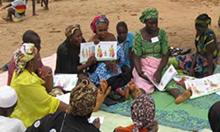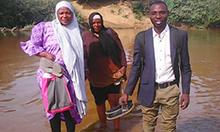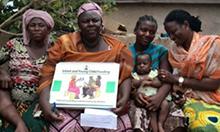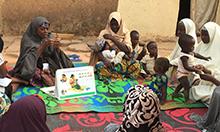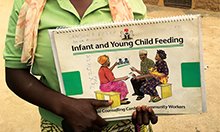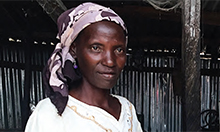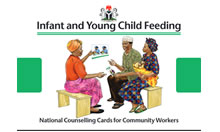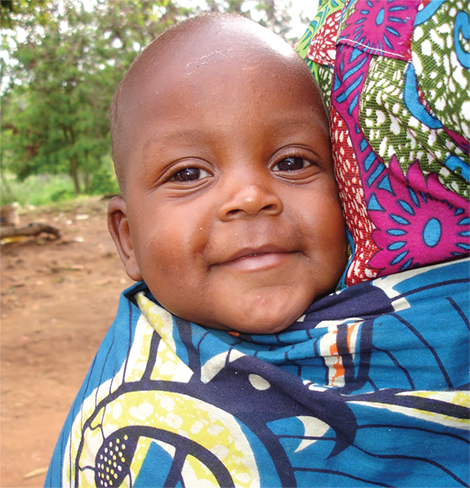
Many countries have acknowledged community-based infant and young child feeding (C-IYCF) promotion, counseling, and support as one of the key pillars of IYCF strategies. In 2009, the United Nations Children’s Fund (UNICEF) and the World Health Organization (WHO) agreed that a global, generic IYCF training package was needed. UNICEF committed to leading the development of the proposed response. The UNICEF Community Infant and Young Child Feeding (C-IYCF) Counselling Package was finalized and field tested under a strategic collaboration between UNICEF/New York and the combined technical and graphics team of Nutrition Policy and Practice and the Center for Human Services, the not-for-profit affiliate of the University Research Co., LLC. The first edition of the resulting C-IYCF Counselling Package was published at the end of 2010. In 2012, UNICEF added a supportive supervision module to the package.
The C-IYCF Counselling Package provides information and guidance for community volunteers (CV) and primary health care staff for supporting mothers, fathers, and other caregivers to optimally feed their infants and young children. The package includes materials for training CVs and primary health care staff to increase their knowledge of maternal, infant, and young child nutrition (MIYCN) practices and to improve their skills in facilitating groups, listening, counseling, supporting, problem solving, and negotiating. The interactive training is based on adult learning principles and focuses on the effective use of a series of counseling cards during support groups and individual counseling sessions with pregnant women and mothers of infants and young children. It also includes guidance for community mobilization and advocacy among government stakeholders and policymakers.
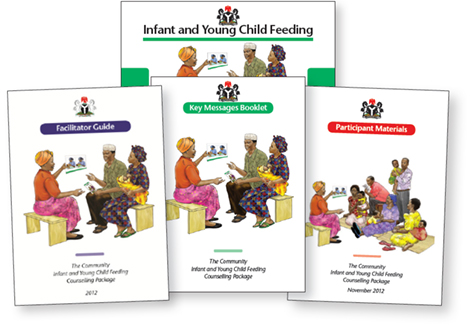
Although there has been strong global interest in the C-IYCF Counselling Package—more than 60 countries (UNICEF NutriDash 2014) have adopted elements of it—little is known about its impact on maternal, infant, and young child nutrition practices in areas where the full training package is being implemented. Nigeria offers a unique opportunity to address this major gap in global evidence because the Federal Ministry of Health (FMOH), with support from two USAID-funded global nutrition projects—the Infant and Young Child Nutrition (IYCN) project and the Strengthening Partnerships, Results, and Innovations in Nutrition Globally (SPRING) project—has made a significant investment in adapting the generic C-IYCF Counselling Package to the Nigerian context, including its translation into six local languages. Nigeria has committed to a national rollout of the package —currently, in 29 of 36 Nigerian states where funding has been secured. After consultations with both SPRING and UNICEF, the FMOH agreed to evaluate the package.
Objective
Through this evaluation, the FMOH, SPRING, and UNICEF will assess the ability of the C-IYCF Counselling Package to change knowledge, attitudes, beliefs, and practices when adapted for the local context and implemented at scale in Kaduna state, Nigeria.1 The graphic to the right illustrates the four components of package implementation being assessed.
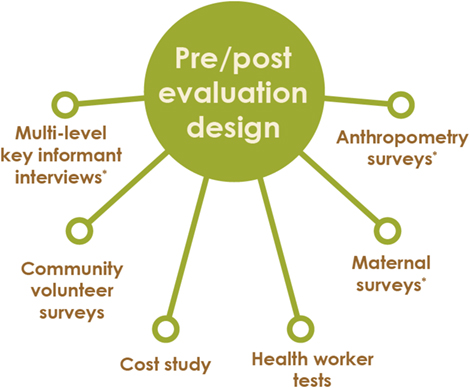
Methods
The evaluation is based on a pre/post design with a comparison group. We are collecting quantitative and qualitative data to assess the enabling environment, social support, and scale-up readiness. IYCF knowledge and attitudes, as well as satisfaction with the C-IYCF Counselling Package training are being assessed among CVs and primary health care staff. In addition, we are conducting maternal and anthropometry surveys among pregnant women and mothers of children under two years. Finally, we are measuring actual and opportunity costs of implementation.
Locations
Data are being collected at the federal, state, and local government area (LGA), and health facility levels. The maternal and anthropometry surveys will be conducted in one intervention LGA, Kajuru, and one comparison LGA, Kauru. These two LGAs have similar demographic characteristics. Both are located in Kaduna State in north central Nigeria.
Timeline
Baseline data were collected between December 2014 and June 2015. A mid-term assessment of implementation processes and progress was conducted at the end of March 2016. Cost implications will be assessed in late 2016. Finally, interviews and surveys similar to those conducted during the baseline will be conducted starting in January 2017, after 18 months of implementation.
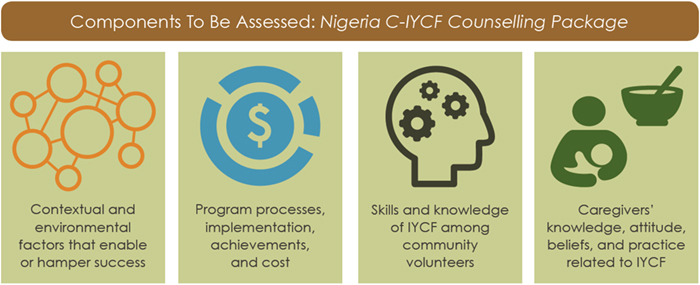
Outputs
The data will be analyzed and findings from this evaluation presented in subsequent briefs and in a final report, which will be shared and discussed with in-country stakeholders from the FMOH as well as state and local governments in Nigeria. Thereafter, findings and recommendations will be shared with the international nutrition community. Our hope is that this research will inform and strengthen adaptation, implementation, and scale-up of the C-IYCF Counselling Package. The results of this study will also make an important scientific contribution to the field of nutrition, in which there is relatively little evidence on the impact of a large-scale community-based IYCF counseling intervention.
Footnotes
1 The Principal Investigators (PI) of this evaluation are Rafael Perez-Escamilla of Yale University, consultant to SPRING, and Sascha Lamstein of SPRING. The co-investigators include Peggy-Koniz-Booher (SPRING), France Begin (UNICEF), Davis Omotola (UNICEF), Stanley Chitekwe (UNICEF), Babajide Adebisi (SPRING), and Chris Isokpunwu (FMOH). In addition, this work would not have been possible without the the support of Arjan De Wagt, Christine Kaligirwa, and Florence Oni of UNICEF; and the efforts of Susan Adeyemi, Emily Stammer, and Sarah Cunningham of SPRING.
